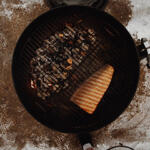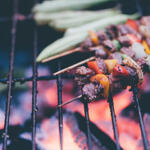
Gas Cooking Reliability
Have you ever wondered why people exclaim "now we're cooking on gas" when things start going well and to plan? The performance difference between a traditional BBQ and a calor gas BBQ explain it quite well.
First up, gas gives you instant heat. From the moment it's ignited to the moment it's safely turned off, gas burns at a steady state, meaning that cooking times are predictable and that food doesn't get burnt or served raw due to unpredictable hot or cold spots on the grill. That whoomph as the gas BBQ ignites, ready to cook whatever you throw at it, is one of the big reasons that cooking with gas is linked with something going so well, so quickly.
Then there's the cleanliness of it all. A neat calor gas bottle doesn't leave your hands coated with moss, dust or ash. When gas cooking was first introduced, it really was an evolution. Most of us have never experienced the sheer frustration of cleaning ash out of a fireplace, but the sheer mess is one of the reasons chimney sweeps were so in demand in Victorian London. Imagine that, instead of just turning off the gas at the end of a meal, you had to get up the next morning to dispose of several kilos of still-warm fine ash, being blown everywhere by the wind!
Now, it's not very fair to compare gas with sticks and wood. These days we have electric ovens and electric hobs which seem even cleaner and instant than gas. But there are good reasons why all the top chefs still use gas in their kitchens. Firstly, there are effects and flavours that you can't accomplish without a flame. The reason meat tastes better on a barbecue than through the oven is because of the way the sugars near the surface of the meat caramelise and fats char when exposed to flame. With a flameless setup, there is no opportunity for the molecules of the food to ignite, so you're robbed of the depth of flavour.
